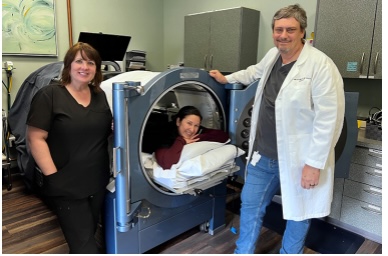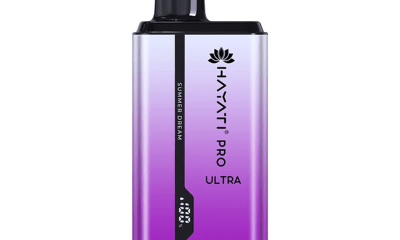Health
Tips to Reduce Your Expenses & Stress

Expense Reduction:
Figuring out the best method to use our money is one of the more challenging elements of personal finance. It’s especially difficult for the Millennial age to find out how to save a lot of money on a tight budget. However, rather than cutting large amounts of your expenditure all at once, the key to reducing your expenditure is to cut down a bit in each area. It may take some effort at first, but after you’re capable to save and pay off much of your debt, you’ll notice a reduction in your financial stress.
Here are four easy yet efficient techniques to reduce your spending and save money:
1. Prepare Food at Home:
“After a hard day at work, it can be difficult to muster the energy to prepare supper. If you dine out frequently, start by cooking at least twice a week and gradually go to four or more times a week. If that’s not possible, set aside sometime on Weekends for meal preparation a couple of quick weeknight dinners” says, Jessica Wright, female entrepreneur and business owner of Dream Team Fundraising. She adds, when you get home from work, you’ll have supper ready to eat. The same may be said of coffee. Purchasing a cup of coffee every day may appear to be a minor cost, but it can quickly add up. Cutting away this one modest expenditure may result in annual savings of hundreds, if not thousands, of dollars.”
2. Save any bonuses you receive:
“There’s nothing like discovering $25 in an old suit pocket or when cleaning out the car to make you feel good. Rather of pocketing the money and risking losing it again, pay yourself first by transferring it into your savings automatically. You may do the same thing with larger sums, like your tax refund or a year-end incentive. If you get a raise at work, the same thing applies. Put the extra money into your 401(k) plan to help you grow your money quicker.” says, Mitchel Harad, the Financial Analyst at OVERDRAFT APPS.
3. Before going to the store, make a grocery list:
According to Daniel Carter, the Chief Editor at 88Vape, “It is tempting to buy more food than you typically would if you go to the grocery store without a list or while you’re hungry. So, before heading to the shop, make a list of things you’ll require for the week to ensure you don’t forget anything and don’t buy anything you don’t need. A list can assist you to refrain from making another needless journey and succumbing to temptation. It can also assist in making meal preparation more economical.”
4. Cancel any club memberships or entertainment bills that you may have:
“It’s easy to overlook our monthly expenses that are routinely reoccurring”, says Henry Ford, Owner at Skilled Golf. He adds, “It may be time to close your gym membership if you’ve had it for a long time but never used it. Also, if you have a television but spend most of your time watching Netflix, consider canceling your cable subscription. On a monthly level, $100 spent on cable Television doesn’t seem like much, but over a year, that’s $1,200 you might be saving! Eliminating the extra costs you don’t use very often will help you save a lot of money.”
Stress Reduction:
The problem is that worrying about money harms our health and relationships. “Stress gives us the biological margin we need to safeguard ourselves from imminent danger. However, whereas our forefathers utilized this useful adrenaline rush to ward off predators, we now use it to meet deadlines, complete sales, and manage our assets, all with the goal of financial independence. Nevertheless, because financial independence frequently feels out of reach, many individuals are continuously concerned about their finances, causing chronic stress.” says Michael Dadashi, Co-Founder & CEO of the Infinite Recovery
How to Relieve Financial Anxiety:
Although we may have financial difficulties from time to time, we don’t have to let them affect our health or relationships. Instead, we may aim to improve our money management skills and lessen financial stress. Here’s how to do it:
- Be honest with yourself about your finances:
The good news is that you have more influence over your money than you would think if you’re under financial stress. It might be tough to notice when emotions are trying to interfere with your capacity to think properly about your financial position when you’re stressed. As a result, it’s critical to acquire a clear picture of your financial situation, regardless of how you feel about it.
“Begin by understanding where your wealth comes from and goes. Make a basic list or spreadsheet to track your earnings and spending. Take a look at the total amount of money coming in vs the total amount of money leaving. Then seek methods to limit your expenditure and lower your monthly costs”, says Daniel Foley SEO Specialist at Planday.
- Begin Talking About Money:
We’ve been socialized to avoid discussing money since it’s not deemed polite or suitable. Most individuals would consider discussing their income, wealth, or the highs and lows of their home finances to be breaching a deeply entrenched societal taboo. Money isn’t something we talk about with our friends, and most of us didn’t hear a lot about it from our parents while we were growing up. As a result, it’s not unexpected that we frequently find it difficult to have honest and open discussions about this taboo issue.
According to Matthew Dailly, Managing Director at Tiger Financial, “Talking about your family’s money may seem awkward at first, but it can be a viable approach to unearth hidden issues and solve critical concerns. Putting money difficulties on the back burner will never solve the problem, and avoiding uncomfortable talks will not make them go away.”
- Maintain a straightforward approach:
Keep it simple if you’ve been putting off taking charge of your financial affairs because the concept of it is daunting or overwhelming. Effective financial management is, at its most basic level, a straightforward question of money coming in vs money going out.
“Thankfully, modern technology and banking have made it simple for us. While it’s essential to keep a watch on all transactions, automate as much as possible to remove a few stages from the process. You don’t have to become mired down in the repetitive duties and emotions that often occur while handling your money, thanks to digital reminders, automatic bill pay, and automated saving transfers and deposits.” says Daniel Foley, the CRO Specialist at Visual Ping
- Establish Objectives:
If you’re now experiencing financial stress, you not only have to find immediate relief, but you want to also put yourself in a position to be more self-sufficient in the future. This is why it’s critical to have both short- and long-term financial objectives.
Erik Wright, Owner & CEO of the New Horizon Home Buyers, states “Be as clear as possible when defining financial objectives, because uncertainty is the source of so much of your financial stress. Your objectives may be to increase your income, reduce your costs, or achieve specified account balances. Please remember that conflicting demands will arise, so take advantage of this opportunity to prioritize what matters most to you. You’ll feel more in charge of your financial destiny if you’re able to stay focused on what you want your money to do for you.”
- Things Happen (and you WILL be affected):
If you devote a lot of time and effort worrying about anything going wrong with your finances, you may relax now – not because nothing will go wrong, but because something will go wrong. So-called “unexpected” costs and financial difficulties are to be expected; in reality, they are an unavoidable feature of life. You’re going to get a flat tire. Your refrigerator will break down. Your cat will need to see an emergency veterinarian. You’re about to lose your job. “A wet day will arrive at some point. If you have an emergency fund set away, it will feel like a tiny inconvenience or sprinkle rather than being stranded in a rainstorm without a raincoat each time it happens. A reasonable general rule is to save up to 3-6 months of living costs to feel more economically solvent. When you need to use the account, be sure to replenish it as quickly as possible. Knowing that you have enough money in case you need it is a huge step toward eliminating financial stress.” says Anthony Mixides, Director at The London Vape Company
- Pay Off Debt:
Without tackling the elephant in the house (debt), we can’t talk about lowering financial stress. You’re not alone if you’ve accumulated up piles of credit cards, student loan debt, medical bills, or any other type of consumer debt. Most individuals have been in debt at some point in their lives.
“Starting by establishing a strategy can help you minimize your debt and lessen your financial stress”, says Daniel Carter, Marketing Manager of Loanx. He adds, “Calculate which debts to handle first by looking at your rate of interest and account balances. You’ll pay off bills from the lowest to the greatest amount, regardless of interest rates, if you use the debt snowball strategy. If you utilize the debt avalanche approach, you’ll pay off your obligations in order of greatest to lowest interest rate, regardless of balance. In any case, determine how much you can afford to pay each month and apply the entire amount to your debt until it has been paid off.”
Reclaim Your Power:
While your financial circumstances may be unique, regaining control over your finances is the only way to alleviate financial stress. Avoiding the truth of the issue will exacerbate the problem. Get a sense as to where you are and work from there. Prepare for the unexpected and put yourself in the best position to succeed.
Health
The Hidden Dangers of Dehydration: How It Affects Your Body


Dehydration is more than just feeling thirsty; it can significantly impact your body and its functions. Staying hydrated often takes a backseat with summer heat waves, strenuous activities, and busy schedules. Understanding how dehydration affects your body and discovering effective solutions, such as IV therapy, can make a world of difference in maintaining your health and well-being.
The Effects of Dehydration on the Body
Water is essential for nearly every function your body performs. When you don’t consume enough fluids, your body begins to experience a range of adverse effects. Here are some of the key ways dehydration impacts your body:
Reduced Cognitive Function: Dehydration can impair brain function, affecting concentration, memory, and mood. Even mild dehydration can cause headaches, dizziness, and fatigue, making it hard to focus on tasks.
Physical Performance: Dehydration can significantly hinder physical performance for athletes or those who engage in regular exercise. When the body lacks sufficient water, muscle cramps, decreased endurance, and a higher risk of heat-related illnesses are expected.
Digestive Issues: Water aids in digestion by helping break down food and absorb nutrients. Dehydration can cause constipation and other digestive discomforts, as your body struggles to process food without adequate hydration.
Kidney Function: Your kidneys rely on water to filter waste from the blood and produce urine. Chronic dehydration can lead to kidney stones and even kidney damage over time.
Skin Health: Your skin is the largest organ and needs water to maintain its elasticity and suppleness. Dehydrated skin can appear dry, flaky, and more prone to wrinkles.
Cardiovascular Health: Dehydration reduces blood volume, making it harder for your heart to pump blood efficiently. This can lead to increased heart rate and low blood pressure, potentially causing serious complications.
Combatting Dehydration with IV Therapy
While drinking water is the most straightforward way to stay hydrated, there are times when our bodies need a more immediate solution. IV therapy offers a fast and efficient method to rehydrate and replenish essential nutrients.
What is IV Therapy?
Intravenous (IV) therapy directly infuses fluids, vitamins, and minerals into the bloodstream. This method allows for 100% absorption of these vital substances, bypassing the digestive system and providing immediate hydration and relief.
Benefits of IV Therapy for Dehydration
Rapid Rehydration
IV therapy from IV Minnesota delivers fluids directly into the bloodstream, allowing for quick and efficient rehydration. This is especially beneficial for severely dehydrated individuals or those unable to consume enough fluids orally.
Electrolyte Balance
Dehydration often leads to an imbalance of electrolytes like sodium, potassium, and magnesium, which are crucial for various bodily functions. IV therapy can include these electrolytes, helping restore balance and prevent complications such as muscle cramps and irregular heartbeats.
Enhanced Nutrient Absorption
IV therapy can include vitamins and minerals that boost your immune system, improve energy levels, and support overall health. This is particularly useful for individuals with nutrient deficiencies or those recovering from illness.
Improved Recovery
Athletes and fitness enthusiasts often use IV therapy to speed up recovery after intense workouts. Combining fluids and nutrients helps reduce inflammation, muscle soreness, and fatigue, promoting quicker recovery times.
Convenience and Customization
IV therapy sessions are typically quick, lasting 30 to 60 minutes. Treatments can be customized to address specific needs, such as hydration, energy boost, or immune support.
Conclusion
Dehydration can profoundly impact your health, affecting everything from cognitive function to skin health. Recognizing dehydration’s signs and its effects is crucial for maintaining your well-being. While drinking water remains essential, IV therapy is a powerful tool for combating dehydration, providing rapid rehydration and other health benefits. Whether you’re recovering from a strenuous workout, an illness, or simply looking to boost your overall health, IV therapy can be an effective and convenient solution. Stay hydrated, stay healthy, and consider the benefits of IV therapy as part of your wellness routine.
Health
Benefits of Maintaining Healthy Testosterone Levels


Testosterone is a hormone that is naturally produced by the body. It’s responsible for many important functions in both men and women, including sexual development, muscle mass, bone density, fertility, and much more.
But when testosterone levels drop below the recommended range for men—which can occur due to age or medical conditions—it can lead to some serious health issues.
Testosterone hormone is essential for the development of male reproductive tissues. It also plays an important role in regulating other functions of the body such as muscle mass, bone density, and sex drive.
If a man’s testosterone levels are too low, it can lead to various health issues. There are many effective testosterone supplements over the counter that help boost testosterone production in the body.
In this article, we will discuss how healthy testosterone levels can improve your life.
Read on to learn about the benefits of maintaining healthy testosterone levels.
Benefits of Healthy Testosterone Levels
Healthier testosterone levels provide numerous benefits for men including improved mood regulation, increased sex drive, and increased muscle mass.
However, it is important for men to consult with their doctors before taking any supplements or making drastic lifestyle changes related to increasing their testosterone levels as these measures could potentially result in adverse side effects if not undertaken correctly under proper medical supervision.
Additionally, healthy lifestyle choices such as regular exercise and eating well-balanced meals can help maintain optimal testosterone levels without any additional supplementation being required!
All these steps together should ensure that you reap all the benefits associated with having healthy testosterone levels!
Physical Benefits
One of the most well-known benefits to optimizing testosterone levels is increased physical performance. Studies have shown that boosting testosterone can increase muscle mass, lean body mass, strength, power, endurance and aerobic capacity. This makes it a great option for athletes who are looking to improve their performance in the gym or on the field. It can also be beneficial for those looking to reduce body fat percentage.
Testosterone hormone has impact on almost all body function including voice frequency and voice pitch. Studies report hat testosterone may also lower your voice.
Increased testosterone has also been linked to reductions in fatigue and an increase in energy levels.
Mental Benefits
In addition to physical performance gains, there are mental benefits associated with increasing your testosterone levels as well. Studies have suggested that higher testosterone levels correlate with improved cognitive function including better memory recall and improved learning abilities.
Additionally, higher testosterone can give you a greater sense of confidence which may result in improved social interactions as well as reduced stress level.
Muscle Mass and Bone Density
Testosterone helps build muscle mass and strength. When it drops below the normal range, it can lead to decreased muscle mass and even weakness in some cases. Low testosterone levels are also associated with an increased risk of osteoporosis or weakened bones due to decreased bone density.
Testosterone plays an important role in muscle growth as it helps build muscle mass by stimulating protein synthesis within the body’s cells. Men who have higher levels of testosterone tend to have greater muscle mass than those with lower levels of the hormone due to its effects on protein synthesis.
Not only does this help them look better but also improves their performance during physical activities like sports or workouts at the gym.
Mood Regulation
Low testosterone levels can cause depression, anxiety, and irritability in men. Studies have shown that men who have higher testosterone levels tend to be more relaxed and confident. This can lead to increased productivity at work and better relationships with family and friends.
Additionally, when men are more relaxed, they are able to focus on their tasks with greater clarity and be more productive throughout the day.
Low testosterone levels have been associated with depression, low libido, fatigue, and irritability in both men and women. Studies have shown that increasing testosterone levels can help improve mood and brain productivity significantly in those who experience these symptoms as a result of low testosterone levels.
Improved Sex Drive
A healthy level of testosterone helps improve a man’s libido or sex drive. When testosterone levels are low, men may experience a decrease in sexual desire or interest which can lead to issues in relationships with their partners or even depression if left untreated.
Studies have found that when men increase their testosterone levels through supplementation or lifestyle changes such as exercise and dieting, they often report an increase in libido which leads to improved sexual performance.
Healthy Weight Management
Finally, increasing testosterone can be beneficial for healthy weight management as well as sexual health concerns such as erectile dysfunction or low libido.
Higher estrogen is associated with increased fat storage around your waistline; so by optimizing your hormone balance (including estrogen) you may be able to reduce stubborn belly fat more easily than relying on diet and exercise alone.
Improved Libido and Fertility
In men, low testosterone levels can lead to infertility due to decreased sperm production. In women, it can cause irregular menstrual cycles or other hormonal imbalances that may interfere with conception or carry risks during pregnancy. Increasing testosterone levels has been shown to improve fertility rates in both sexes.
Low libido is one of the most common symptoms of low testosterone levels in both men and women. Increasing testosterone levels has been shown to increase libido significantly in those who are experiencing this symptom as a result of their low hormone levels.
Conclusion
Healthy testosterone levels are important for maintaining good overall health for both males and females alike. It plays an important role in sexual development, muscle mass, bone density, fertility rates, libido, and even moods!
If you think your hormone level might be lower than normal for your age or gender group, speak with your doctor about potential treatments that could help restore them back into the normal range! Maintaining healthy testosterone levels is just one step towards achieving better overall health!
Improving your hormone balance can lead to a host of positive effects—both physical and mental—and optimizing your testosterone is no exception!
From physical performance improvements like more strength and less fatigue to mental clarity gains like improved cognition and increased confidence—healthy levels of testosterone have something for everyone!
For those looking for weight loss assistance or sexual health improvements you’ll likely find some relief through proper hormone balancing as well!
The best way to know if boosting your testosterone will provide any benefit is by talking with a medical professional about having your hormone levels checked today!
Health
Hyperbaric oxygen therapy aids in natural healing


Natural healing is the process of the body through which it resists any external factor to change its internal environment. This resistance to the external factors is done by the system called the immune system. Healing requires the growth and production of new cells and removal of old worn out cells. This is done by the body itself but requires proper fuel for this and the fuel is no doubt, OXYGEN!
How does hyperbaric oxygen therapy boost the immune system?
For proper natural healing, the white blood cells require a generous amount of oxygen rich blood to knock out the bacteria. This oxygen level is not met in a normal environment. Because under normal conditions very little oxygen is carried out by the red blood cells.
This will lead to slow or sometimes no natural healing. In such circumstances, bacteria overcome the body and lead to infection. Such infections are really common especially in wounds. Then, high doses of antibiotics are indicated.
To prevent such circumstances, hyperbaric oxygen therapy is a good option. As we all know, oxygen is supplied under high atmospheric pressure. This will cause a tenfold increase in oxygen concentration of blood plasma, leading to the rush of oxygen rich blood to the affected site and thus strengthening the immune system.
HBOT provides adequate oxygen to the white blood cells and also flushes out the toxins out of the body, which leads to the strengthening of the immune system thus accelerating natural healing.
How does it supports in healing of the body:
Immune system only stops and kills bacteria but the damaged cells also need to be repaired. Our bodys have a natural tendency to repair itself. This is done through cell division and apoptosis (programmed death of worn out cells). All this process needs a proper supply of oxygen rich blood to the targeted site.
The damage of the cells is always followed by the inflammation of surrounding blood vessels which comprise the blood supply and cause delayed healing. The high oxygen saturation from HBOT enhances the ability of red blood cells to change their shapes. This allows them to pass through the inflamed vessels thus accelerating the healing process.
The research evidence is still not very strong but most of it supports this. The oxygen fluctuation due to HBOT therapy causes the release of growth factors in the body. These growth factors help to grow the new cells which replace the older worn out cells. Thus helps in growth and healing.
A study published in 2008 showed that hyperbaric oxygen therapy is helpful in the healing of diabetic foot ulcers. The mechanism behind it is similar to natural healing.
Is it safe?
HBOT is preventive and supportive therapy. It is non-invasive and painless and brings comfort to the user, so it is safe to use. The use of HBOT for rejuvenation, healing and preventive purposes is usually harmless. However, the timing of the sessions should be within normal limits because “excess of everything is bad.” You can have your own HBOT chamber in your house and can have your session anytime. They are user friendly so you can use them easily.
What are the protocols ?
HBOT is a simple therapy which is most commonly used for the preventive and rejuvenating purposes. The protocols of HBOT are following:
- The duration of each session ranges from 30 minutes to 120 minutes. It totally depends upon the goal.
- In general, for health optimization the duration should be 60 minutes.
- The pressure ranges are 1.5 to 3 atm
- For central nervous system benefits, the pressure should be from 1.5 to 2 atm
- For other health benefits higher pressures can be used.


Which is the best HBOT chamber in the market?
This might be the next question popping in your mind. The answer to this question is Oxyhelp Hyperbaric Chambers. They produce the most luxurious and reliable oxygen chambers that money can buy today.
They are user friendly and pocket friendly. The internal environment is designed according to the comfort of the user and is completely antiseptic. The sealed doors and internal controller are also marking features.The size of the chamber is also accommodating so you don’t need to worry about the space. In a nutshell, Oxyhelp chambers are all in one deal so grab yours ASAP!
-



 Biography5 years ago
Biography5 years agoJacqulyn Elizabeth Hanley is the Mother of Liza Soberano?
-



 Home4 years ago
Home4 years agoEpson L3110 Driver Free Download Latest Updated Version
-



 Games3 years ago
Games3 years agoBest Free To Play MMORPG To Try This 2021
-



 Biography5 years ago
Biography5 years agoAmanda Levy Mckeehan Biography, Family, Net Worth, Age, Affairs, Facts
-



 Biography5 years ago
Biography5 years agoWho is Rose Dorothy Dauriac? Scarlett Johansson Daughter?
-



 Biography5 years ago
Biography5 years agoJessica Ditzel Secret Information that Nobody Knows | Joe Rogan’s Wife
-



 Biography5 years ago
Biography5 years agoWhat is the relation of Nathaniel Larry Osorno with Liza Soberano?
-



 Home5 years ago
Home5 years agoLiza Soberano Biography, Age, Family and Boyfriends































